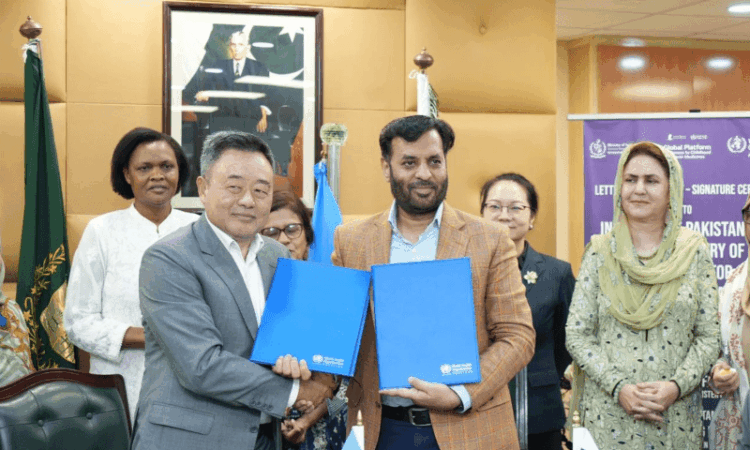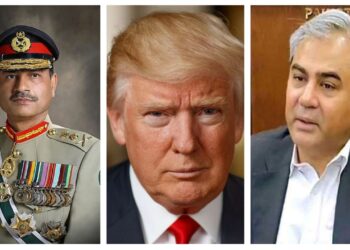ISLAMABAD (Web-Desk); Pakistan has signed an agreement with the World Health Organization (WHO) to provide free cancer medicines to 8,000 children each year. The agreement marks Pakistan’s formal participation in the Global Platform for Access to Childhood Cancer Medicines, an initiative aimed at ensuring children affected by cancer receive quality-assured medicines at no cost.
The agreement was signed in Islamabad by Federal Health Minister Dr. Mustafa Kamal and WHO Representative in Pakistan Dr. Dapeng Luo. It will remain valid until December 31, 2027, with the option to extend through mutual agreement.
According to a WHO press release, more than 8,000 children are diagnosed with cancer annually in Pakistan. The new collaboration will not only provide free medication but also offer continued support to the Ministry of Health and provincial health authorities through technical assistance, resources, and operational aid.
The agreement targets a major increase in childhood cancer survival rates in Pakistan, aiming to raise the current rate from 30% to 60% by 2030. For comparison, the survival rate in high-income countries stands at about 80%. The WHO noted that limited access to treatment is one of the primary reasons for Pakistan’s lower survival rate.
“No child affected by cancer should die because of a lack of access to treatment,” Dr. Luo stated. “WHO will work side by side with the Ministry of Health and partners to save lives and ensure that no child is left behind.”
Health Minister Dr. Mustafa Kamal described the agreement as a major step forward: “This is a big day for Pakistan. Through this partnership, we will receive life-saving medicines to treat children suffering from cancer. If we can save even one life through this initiative, it will be a victory for humanity.”
Pakistan is now the second country in the Eastern Mediterranean Region to join the Global Platform, which was co-founded in 2021 by WHO and St. Jude Children’s Research Hospital to ensure a steady supply of certified cancer medicines in low- and middle-income countries.
As per the agreement, UNICEF will be responsible for procuring and delivering the medicines to Pakistan.
Globally, around 400,000 children are diagnosed with cancer every year, and nearly 90% of them live in low- and middle-income countries, where survival rates are below 30%, WHO highlighted.
At the signing ceremony, Minister Kamal also raised concerns over other major health issues, such as the high fertility rate and the prevalence of preventable diseases in Pakistan.
He said that although the country’s fertility rate had decreased from six births per woman in 1994 to 3.6 in 2024, it had remained unchanged since 2005 — an issue that required urgent attention.
Kamal stressed the importance of public awareness and government collaboration to reduce maternal and infant mortality, referencing that 11,000 mothers reportedly die each year due to pregnancy-related complications. (WHO’s April statement put the figure closer to 9,800.)
The minister also said 43% of children in Pakistan are born stunted, impacting their mental development. He emphasized the need to address this problem if the country hopes to benefit from its young population.
On the topic of preventable diseases, Kamal said waterborne illnesses account for 68% of hospital admissions in Pakistan. He highlighted the lack of sewage treatment and unsafe drinking water as key contributors to the problem.
He criticized the widespread refusal of vaccines by some families, noting that health workers often face closed doors during vaccination drives. “This cannot be the government’s responsibility alone,” he said, urging citizens to support the nation’s health efforts.

























